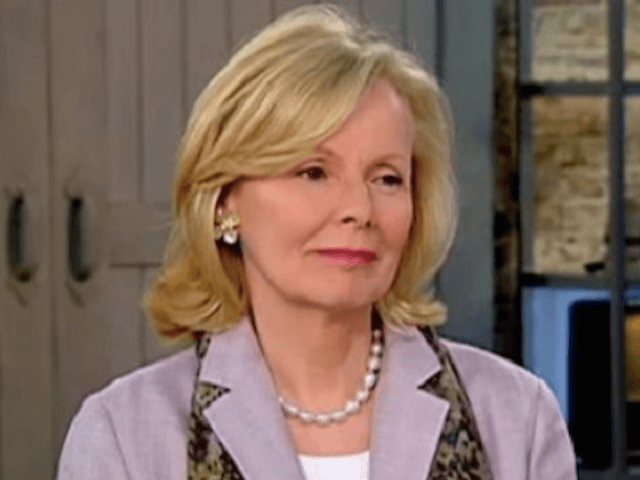When Wall Street Journal columnist and former Reagan speechwriter Peggy Noonan made “the case for Barack Obama” in 2008, she put his foreign policy at the top of her list: “He has within him the possibility to change the direction and tone of American foreign policy, which need changing,” she wrote. So it is perhaps no surprise that Noonan has ditched her recent critical posture to praise Obama’s sudden announcement of a change in U.S. policy towards Cuba. But Noonan is wrong.
In her weekend column for the Journal, Noonan claims that the Cuba deal is in our national interest, and therefore worth doing. She argues that even if Obama’s new approach fails, “we’ll be no worse off than we were and can revert back to the old order, yanking out our embassy and re-erecting old barriers.” She dismisses the concerns of Cuban-American critics as so much “bitterness.” And then there’s this conclusion: “President Obama’s opening seems so far cleverly done and well wired.”
There, Noonan has reality exactly backwards. Most of the arguments for or against the new policy are speculative, but that one is not. Obama arrived at his new Cuba policy the same way he has arrived at other, failed policies: with a minimum of consultation and a maximum of contempt for the people and the process. (In this case, Obama’s new Deputy Secretary of State, Tony Blinken, actually misled Congress in his confirmation hearings about what the president was doing on Cuba.)
It is telling that Cuban-Americans from both parties blasted Obama’s decision, even though that community gave Obama an unusual amount of trust for a Democrat. Done properly, one can imagine Republican Marco Rubio and Democrat Robert Menendez offering cautious support for the new policy, had they been briefed along the way, had their advice been sought, had their constituents been taken seriously. Instead, Obama has triggered a backlash that will complicate his policy goals.
Obama’s political strategy throughout his presidency, which suits his egomaniacal personality, has been predicated on the idea that Americans just care about the result of policy, not the way policy is made. Americans “don’t care about majorities and minorities and process,” he said during the Obamacare debate. Over and over, he has identified an issue on which most Americans agree with the substance of what he wants to do, and then pursued it through one-party rule or executive decree.
Not only is that approach divisive (and politically costly for Democrats), but it also produces bad policy. Deliberation and debate provide time for mistakes to be ironed out. Many of the failures of the stimulus, and the errors and broken promises of Obamacare, could have been avoided if Obama had taken the time to listen. Noonan knows this well: near the end of the grotesque Obamacare debate in 2010, she warned President Obama: “Never take the country down the road to Demon Pass.”
Yet here we are, on that road again. Obama has made a dramatic change to U.S. foreign policy–one he had long promised, one that enjoys the support of most Americans in theory, but also one that dismisses Congress and the constitution. It will be impossible to set up a U.S. embassy in Cuba without the Senate’s help: why alienate it from the start? In keeping with such imperious disregard for detail, Obama’s policy makes few demands of Cuba and has no way of measuring Cuba’s compliance.
The Cuba shift also bears Obama’s typical disregard of history–his own, and the country’s. In 2009, Obama restored the U.S. embassy in Damascus: did that lead Syria to reform? As Noonan well knows, the reason trade opened the communist bloc to political change is that the west had insisted on human rights conditions. Yet human rights and democracy are absent from the Cuba deal. Raúl Castro, in fact, suggested that Obama use his executive power to enforce the deal, democracy be damned.
If the Cuba deal succeeds in opening the Castro regime to change–and one can only hope it does–it will be because of luck, not design. It is, to borrow Noonan’s criticism earlier this year of Obama’s policy on ISIS, “unserious.”
Moreover, Obama’s party has just lost the midterm elections in a landslide–an election in which his policies, especially his foreign policies, were on the ballot. Perhaps there was a mandate for a Cuba shift in 2009, or in 2013–but certainly not today, and not this way.
There is a price paid, in terms of our own health as a republic and a society, for policy decisions made by fiat. On one issue after another, the legitimate concerns of political minorities are dismissed as mere “bitterness”–or, in the president’s own condescending formulation, as “passions,” motivated by feelings or interests, not reason.
Rather than setting an example for Cuba of democratic leadership, Obama has emulated the Castros’ authoritarian style.
So who, in fact, has defeated whom?

COMMENTS
Please let us know if you're having issues with commenting.